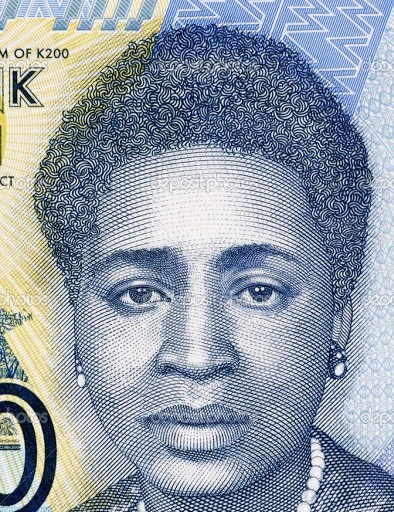Proverbs 18:22 ―“Whosoever findeth a wife findeth a good thing, and obtaineth favour of the Lord― “Whosoever findeth a wife findeth a good thing, and obtaineth favour of the Lord” is often referred to during wedding ceremonies in Malawi. I want to analyse this verse by imagining a conversation held by four schools of feminism; Western Feminism, Radical Feminism, Womanism and African Womanism.
Western Feminism, in general, would consider this verse to be sexist. The statement implies that if a man finds a woman to be his wife he finds a good “thing”. This statement objectifies the woman, and this is a major bone of contention in feminism (Mohanty). She is no more than a “good thing”: her value as a person is directly correlated to her usefulness to a man. This statement has Manichean dualism written all over it: a woman is either good or bad (Donovan). The wife is classified as a good thing only because she is man’s helper. Sexism narrows down the woman to a Manichean dualism. The bible is no exception. It has Mary as the virgin, pure and good, Eve on the other hand as evil. This classification depends on how they help or deter the man’s agenda. If a woman helps man’s mission then she is like Mary and if she deters man’s mission then she is like Eve to Adam. Feminism demands the equality of sexes; therefore why must man find woman (Katenje). This statement implies that woman cannot find man, that woman waits to be found by man. This places woman at subordinate level to her relation to man: he is the finder/hunter/explorer and she is the object of his pursuit like a treasure box.
Radical feminism takes the microphone. As a subsection of feminism, radical feminism would reject this statement and its implications. This type of feminism believes in the removal of patriarchal and stereotypical roles such as mother and wife which are viewed as oppressive (Kabwila). Scrutinizing this statement through the lens of Radical Feminist thought: it infers that women’s purpose in life is to be married and serve her husband. This statement insinuates that women cannot hold jobs nor have the same aspirations as men. It constricts women to the role of a wife. The statement also presents a woman as an object in a patriarchal institute where she needs to be found by a man. What Radical Feminism would see in this proverb is the suggestion that all women must be married, that their identity is dependent on men, either as a father or a husband, and that without this she is not a full human being (Arndt, The Dynamics of African Feminism). Lastly the idea of a wife is closely linked with motherhood, the man has found a good thing because the woman his own personal baby-making machine. Radical feminists argue that woman’s “role in reproduction” is biggest cause of sexist biases (Sayers). Some radical feminists argue that women should reject their role in reproduction.
And Womanism’s contribution to this discussion? Womanism is similar to feminism but it is for black women only: it advocates for not only women’s equality but the liberation of the whole community (Arndt, The Dynamics of African Feminism). It was coined by Alice Walker. This is founded on the principle that black communities have problems that both men and women experience therefore a black feminist needs to take these problems into consideration (Collins). Womanism separates itself from feminism which it finds western. Firstly, because of the long history of suffering of the Black community. Secondly it accuses white women of being part of the imperial structure that oppressed their communities (Mckay). Womanism recognises lesbian love (Collins), and would thus take issue with the idea of only the men doing the finding. As such, it would regard the verse as being too exclusive, taking into account the New International Version of this verse, “He who finds a wife finds what is good and receives favour from the Lord” (Barker).
The term African Womanism was coined by Chikwenye Ogunyemi. It is similar to Womanism except it takes into consideration misogynistic cultural practices and rituals that African-American women do not have to endure (Chidammodzi). The African womanist embraces “wifehood, womanhood and motherhood” (Chidammodzi) . The concept of wife here in Africa is synonymous with the concept of bearer of children, the concept of family. Therefore a man who finds a wife finds a valuable partner who will help rear a family. A wife is a partner who will not only rear children but fight social problems. Womanism is concerned with not just “sexual issues” but also “racial, cultural, national, economic and political” (Arndt, The Dynamics of African Feminism). An epitome of this in Malawi, many women fought alongside men for freedom from the colonisers for example, Vera Chirwa. African Womanism is explicitly inclusive of men: feminism is not and Walkerian Womanism is not explicit in its inclusion of men (Mekgwe). Therefore the idea of man finding woman is not so repulsive to African womanists. A woman is valuable like gold that she must be found, like a prince searching for his princess in the high tower man must struggle to find this good thing. While Walkerian Womanism endorses lesbian love, African Womanism is strongly intolerant of it (Arndt, African Gender Trouble and African Womanism: An Interview with Chikwenye Ogunyemi and Wanjira Muthoni). This statement is a reaffirmation of African Womanistic values whosoever finds a wife finds a partner who will help them combat social problems and anchor the family.
Western Feminism rejects the ideas embedded in Proverbs 18:22, Walkerian Womanism finds those ideas problematic, while African Womanism accepts fully accepts the verse. This is an ongoing discussion, to which there can be no hard and fast answers, but one thing is for sure; for as long as there are theories, there will always be thought-provoking discussions.
Works Cited
Arndt, Susan. “African Gender Trouble and African Womanism: An Interview with Chikwenye Ogunyemi and Wanjira Muthoni.” Chicago Journal 25.3 (2000): 709-726.
—. The Dynamics of African Feminism. Asmara: Africa World Press, 2002.
Barker, Kenneth L., ed. The NIV Study Bible. Zondervan Publishing House, 1995.
Chidammodzi, H. “Adressing African Feminism.” Journal of Humanities 8/9.1016-0728 (1994/5).
Collins, Patricia Hill. “Whats in a name? Womanism, Black Feminism and Beyond.” The Black Scholar 26.1 (1996): 9-17.
Donovan, Josephine. “Beyond the Net: Feminism Criticism as a Moral Criticism.” Newton, K. M. Twelfth Century Literary Theory. London: Macmillan Education, 1988. 265-268.
Kabwila, Jessie. “In search of African and Afro-Diasporic Women’s agency: Interrogating the narratives of Adichie, Dangarembga and Danticat .” n.d.
Katenje, Nellia Annie. “Feminism in Nuruddin Farah’s From a Crooked Rib and Sardines.” Society and the Arts: Studies in Gender, Literature and Language. Ed. Brighton Uledi-Kamanga. Kachere Series, 2014. 124-153.
Mckay, Nellie. Y. “Acknowledging Differences: Can women find unity through diversity?” Bussia, Stanlie M. James & Abena P.A. Theorizing Black Feminisms : the visionary prgmatism of black women. London: Routledge , 1993. 267-283.
Mekgwe, Pinkie. “Theorizing African Feminism(s) : the ‘Colonial’ Question.” QUEST : An African Journal of Philosophy (n.d.): 11-22.
Mohanty, Chandra Talpade. “Under Western eyes: Feminist Scholarship and Colonial Discourses.” The Women, Gender and Development reader. Ed. Lynn Duggan, Laurie Nisonoff & Nan Wiegersma Nalish Visvanathan. London: Zed Books , 1977.
Sayers, Janet. Biological Politics: Feminist and Anti-Feminist Perspectives. London: Tavistock Publications, 1982.




